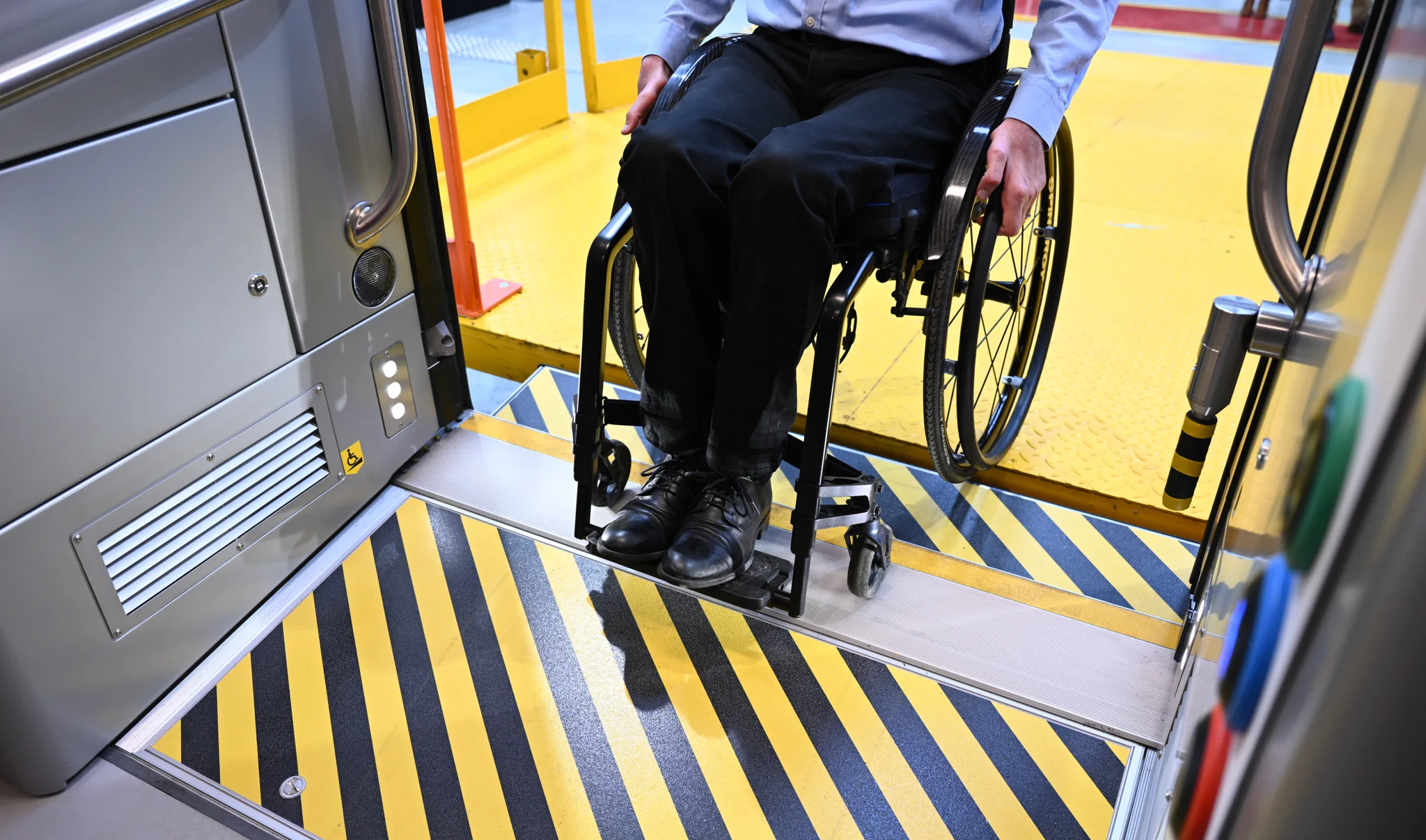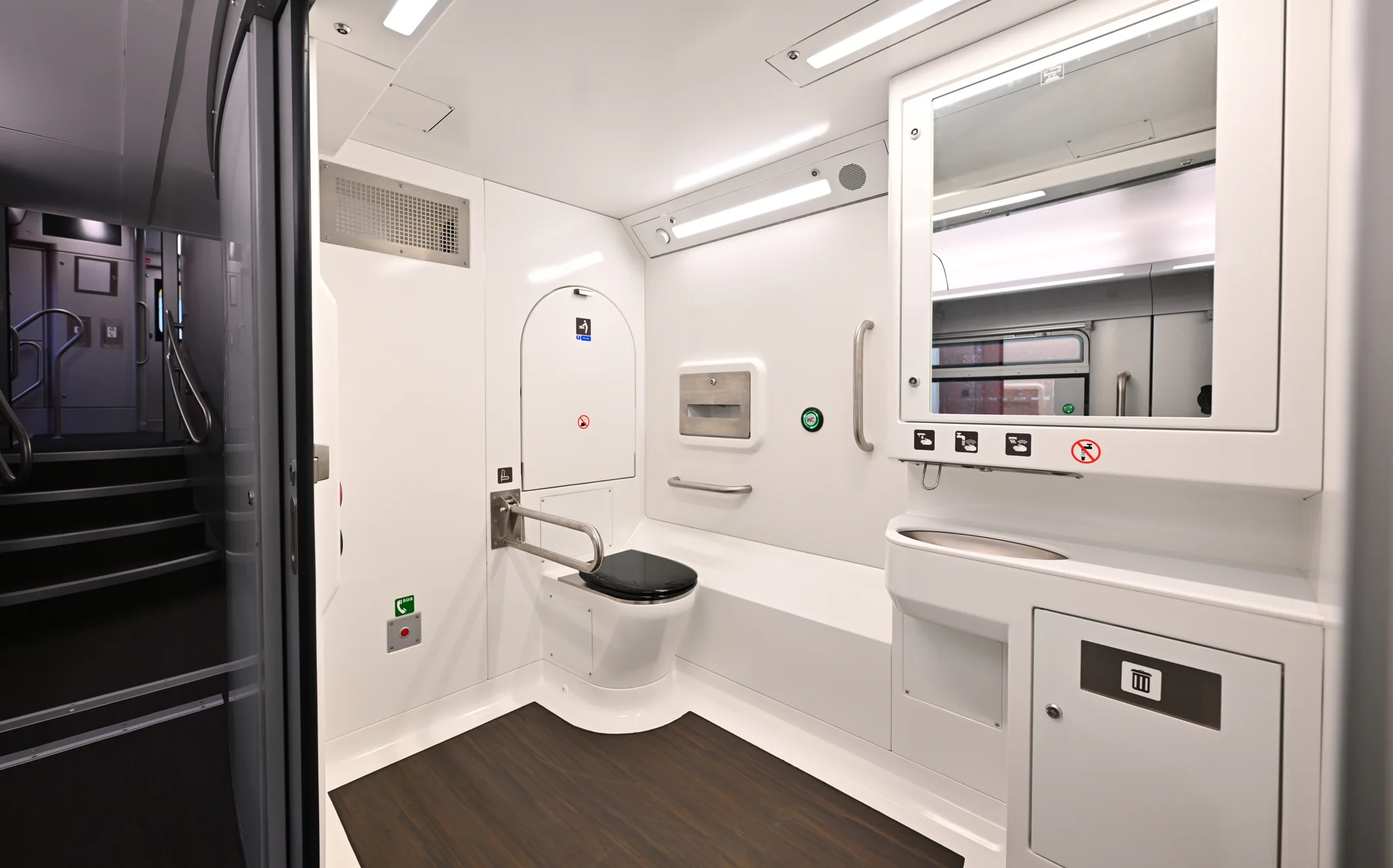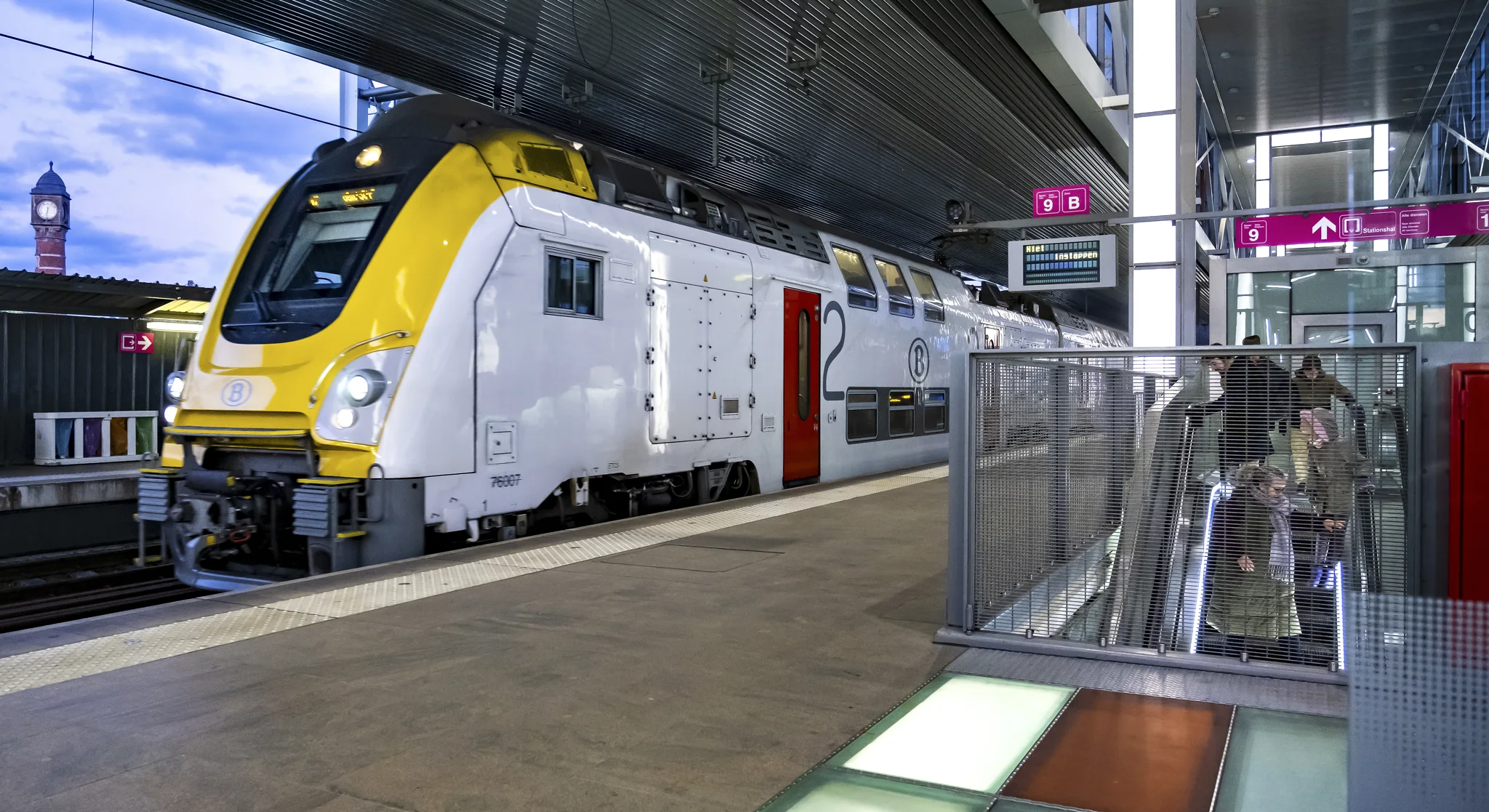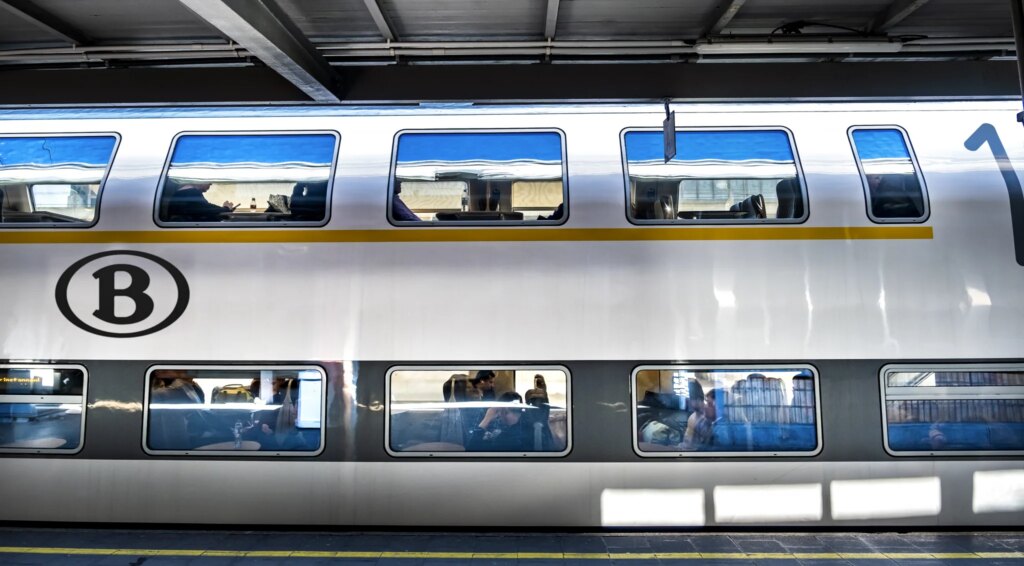In a bid to ensure that public transport can be used by everyone, national train operator SNCB has presented its first autonomously accessible train. Ticket machines, stations and platforms are also being adapted to ease access for those with reduced mobility.
A lack of adapted infrastructure means that taking public transport independently is a struggle for many people with reduced mobility. The new autonomously accessible M7 double-decker coach will resolve the issue of boarding. With 130 such carriages due to operate on national lines, it will become easier for the public at large to purchase tickets and arrive at their final destination without requiring staff assistance.
"The arrival of these new 100% accessible carriages is a strong positive signal: we want everyone on board," said Georges Gilkinet, Minister for Mobility. "Everyone should be free to choose their means of transport, and even more so to choose the safest and most environmentally friendly means of transport."
Thinking through every step
The new M7 carriages hit stations across Belgium for the first time today. They are an updated version of the model first ordered in 2015. Sophie Dutordoir, CEO of SNCB, acknowledged the need to improve access to public transport and said that this motivated the decision in 2020 "to make autonomous accessibility a priority and order 130 autonomously accessible double-decker coaches."

Credit: SNCB
The carriages have a door with a boarding height of 76 centimetres – the standard height of the new platforms. Before the door opens, a step slides out to the platform.
Inside the carriage, modifications include widened corridors, additional handholds, lower buttons and adapted sanitary facilities.

Credit: SNCB
The updates followed consultation with interest groups who gave concrete design recommendations. "It is important that we are involved in plans for greater accessibility from the beginning," said Nino Peeters, president of accessibility organisation Collectif Accessibilité Wallonie Bruxelles (CAWaB). "Nothing about us without us."
As well as ensuring that each train has at least one autonomously accessible carriage, a multi-purpose carriage with space for bicycles and prams will also be included, making space for at least 16 bicycles on every train.
Adapting platforms
The other autonomously accessible carriages, along with all other M7 carriages, are expected to be delivered from the second half of this year and by the end of 2026. From then on, every M7 train will have at least one of these coaches. However, the factory producing the new carriages is facing a 2.5-year delay in delivery.
"That means that we have to use older trains which are more susceptible to breakdowns for longer than planned," Dutordoir explained, warning that this would impact punctuality.

Credit: SNCB
In the meantime, station works will ensure a fully autonomous journey for people with reduced mobility. There are currently three different heights across Belgian stations, making it difficult for people with reduced mobility. Already 103 stations are fully accessible and the works mean that by the end of 2032 there should be 176, with a focus on the busiest stations.
Stations also need a ramp or lift to each platform to ensure they are fully accessible and they must be equipped with textured floor tiles for the visually impaired. New ticket machines fitted with assistance buttons will be installed from 2026, allowing travellers to immediately contact an SNCB employee who can take over the machine remotely.

